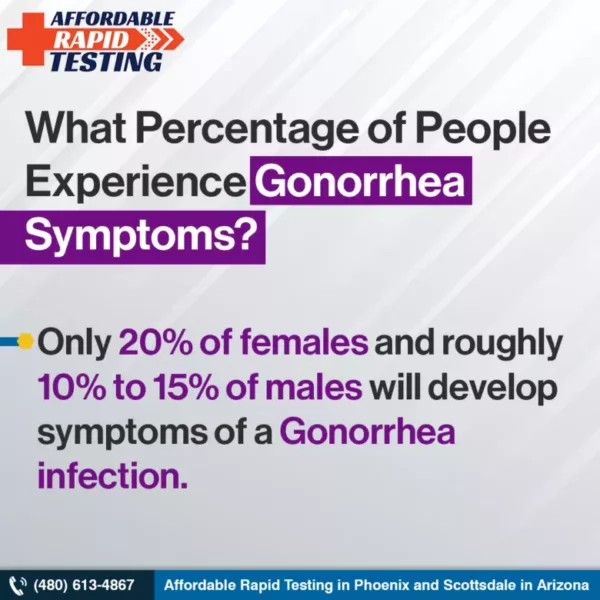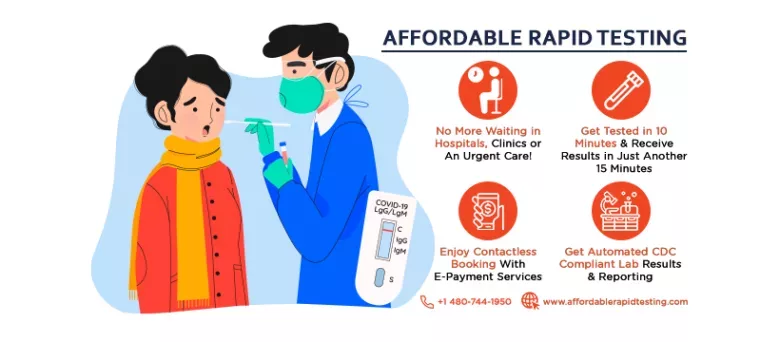Over the last two decades, there has been a steady rise in cases of sexually transmitted diseases (STDs) all across the globe. Phoenix, the seat of Maricopa County, is no exception.
The Maricopa County Department of Public Health has reported a straggling 175% surge in Syphilis cases from 2016 to 2021. Gonorrhea saw a substantial 70% rise and Chlamydia cases went up by 21% respectively.
This rise in number calls for an increased need for STD testing facilities in Phoenix. This article discusses some of the most common STDs that individuals should be informed about so that they can be addressed in time.
Some of the most common STDs
STDs are viral, bacterial, or parasitic infections that spread through vaginal intercourse, oral sex, or anal sex, or simply through skin-to-skin contact. Other modes of contracting STI viruses include sharing needles or through blood transfusion.
Infected mothers may also pass on sexually transmitted infections to their babies at the time of pregnancy, during childbirth, or through breastfeeding.
Chlamydia
Chlamydia, the most common STDs in Maricopa County, has become a potential threat expecially to women. This STD can pose a considerable threat to a woman’s reproductive system which may also result in infertility.
Chlamydia also increases the risk of ectopic pregnancy, which is a pregnancy occurring outside the womb. An infected mother can also infect a child with Chlamydia during its birth.
You may suspect being affected by Chlamydia if you notice the following systems:
- Women may witness a discharge from their vagina or experience burning while urinating.
- Men may see some abnormal discharge from their penis and experience discomfort while urinating.
- A lesser common symptom in men includes ache or swelling in one or both the testicles.
Although the cases of Chlamydia in Arizona decreased by 14% from 2019 to 2020, the threat still looms large. If left untreated for a prolonged time, Chlamydia may lead to the risk of the patient acquiring or giving HIV. If you feel even the slightest discomfort, search for “STD test near me” and get yourself tested.
Syphilis
Syphilis is caused by bacteria and spreads through sexual contact. It spreads through bodily fluids during sexual contact or blood through needles. One who is affected by Syphilis usually experiences discomfort in stages.
Primarily, it begins as a painless sore that lasts for about 3-6 weeks. Direct contact with chancre, a syphilis sore, can result in transmission. This sore then changes to skin rashes and lesions in the anus, vagina, and mouth.
Therefore, anyone who notices such abnormality should look for an STD clinic nearby and get tested. If detected early, Syphilis can be cured with antibiotics like Penicillin. Pregnant women should also get checked for Syphilis during their first prenatal checkup.
Herpes
Herpes is an STI that occurs in the form of sores and blisters around the mouth and the genitals. It is caused by Herpes Simplex Virus (HSV).
HSV are of two types:
- HSV-1: This virus causes oral herpes. It affects the mouth and skin in the surrounding areas. It may also affect the area around one’s genitals.
- HSV-2: This virus causes herpes in the genital area. It is usually transmitted through sexual contact.
The virus can easily be transmitted from one individual to another through skin contact in areas like the mouth, anus, and genitals.
Some common ways of transmission are:
- Having unprotected intercourse, both vaginal and anal.
- Sharing sex toys.
- Coming in genital or oral contact with a herpes-infected person.
HSV is the most contagious when the first symptoms appear on an individual, and before the healing process starts.
Genital Warts
Warts, that are cauliflower-like skin growths, find their origins in the Human Papillomavirus (HPV). HPV is a complex virus family with more than a hundred variants.
Particular strains of HPV, like type 16 and type 18, can bring about alterations in cervical cells, leading to a condition known as Cervical Dysplasia. Cervical Dysplasia, if left untreated for a long time, can progress into Cervical Cancer.
Detecting high-risk, asymptomatic forms of HPV requires specific tests such as the Pap test or HPV test.
Furthermore, additional diagnostic methods like colposcopy or VIA (visual inspection with acetic acid) can be employed to identify irregular cells that may stem from an HPV infection. Early detection is pivotal in addressing potential health concerns linked to HPV.
Gonorrhea
There have been 6% more cases of Gonorrhea in Arizona in 2020 as compared to 2019.
Just like most other STDs, Gonorrhea also spreads through contact with the genitals or bodily fluids. It can also get transmitted from an infected mother to a child during its birth, primarily affecting its eyes.
Gonorrhea affects the joints, causing them to turn red, swollen, and painful, resulting in septic arthritis. The bacteria also infect the areas like rectum, urethra, mouth, throat, and the female reproductive tract.
Some symptoms of Gonorrhea include:
- In men, Gonorrhea causes painful sensation while urinating, pus-like secretion from the penis’ tip, swelling, and pain in one of the testicles.
- Symptoms in women include an increase in vaginal discharge, bleeding between periods or after intercourse, or pain in the abdomen and pelvic region.
- Anal itching; there may be pus or blood-like discharge from the rectum.
- Gonorrhea may lead to eye pain, light sensitivity, or pus-like secretion from the eyes.
If you have any of these symptoms, schedule a timely test for STDs to avert major health problems in the future.

Get Yourself Tested at a Nearby Affordable Rapid Testing Centre
Knowing about the most common STDs empowers an individual to protect their sexual health, detect any discomfort at an early stage, seek medical assistance on time, and make informed decisions.
Most STDs can show little to no symptoms at all. Therefore, regular STD testing is crucial to detect the problems at an early stage and prevent complications. Affordable Rapid Testing offers testing facilities in Phoenix, Arizona that provide easy access to STD testing services., To learn more about their testing options and locations, visit their website.


